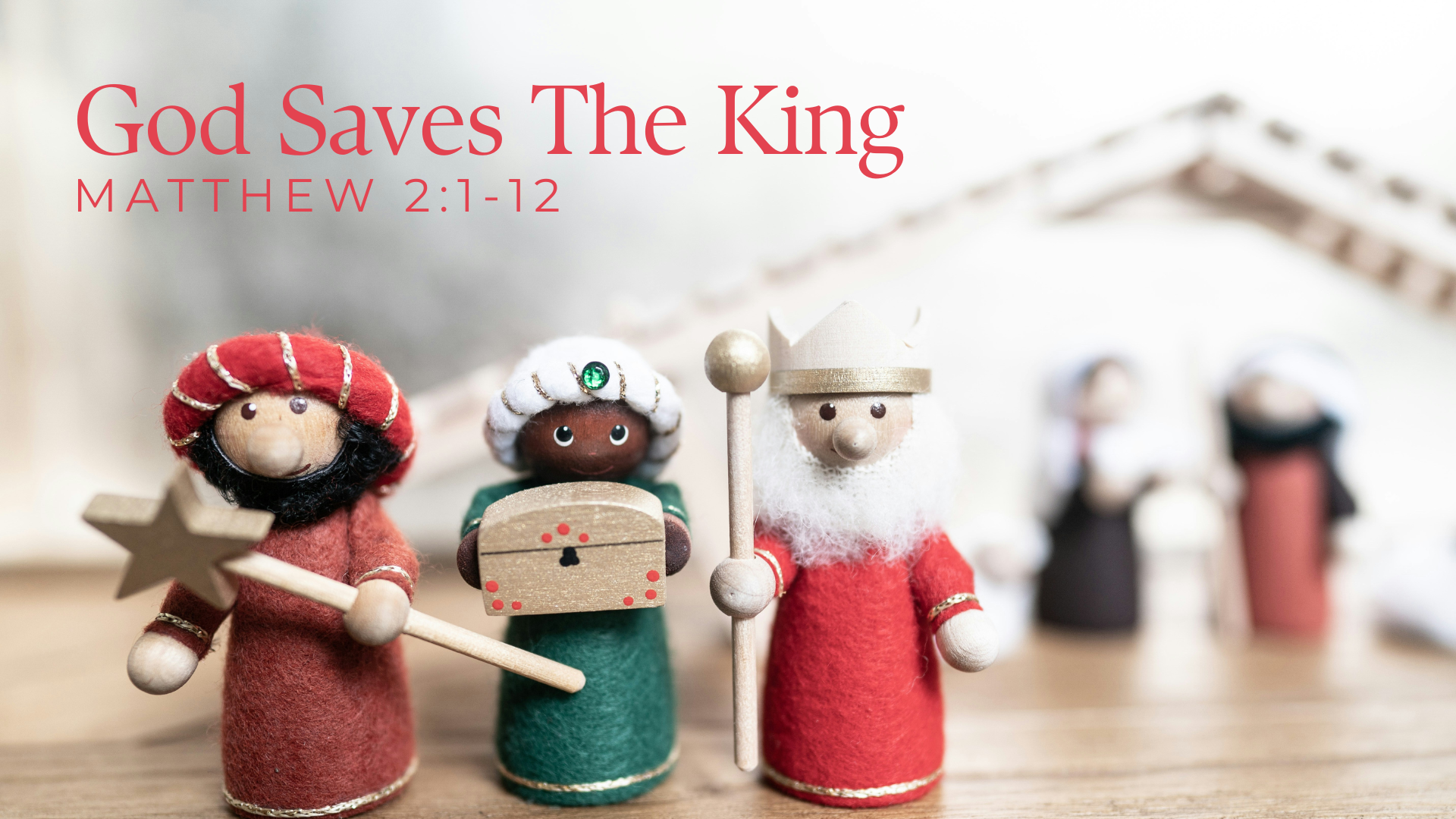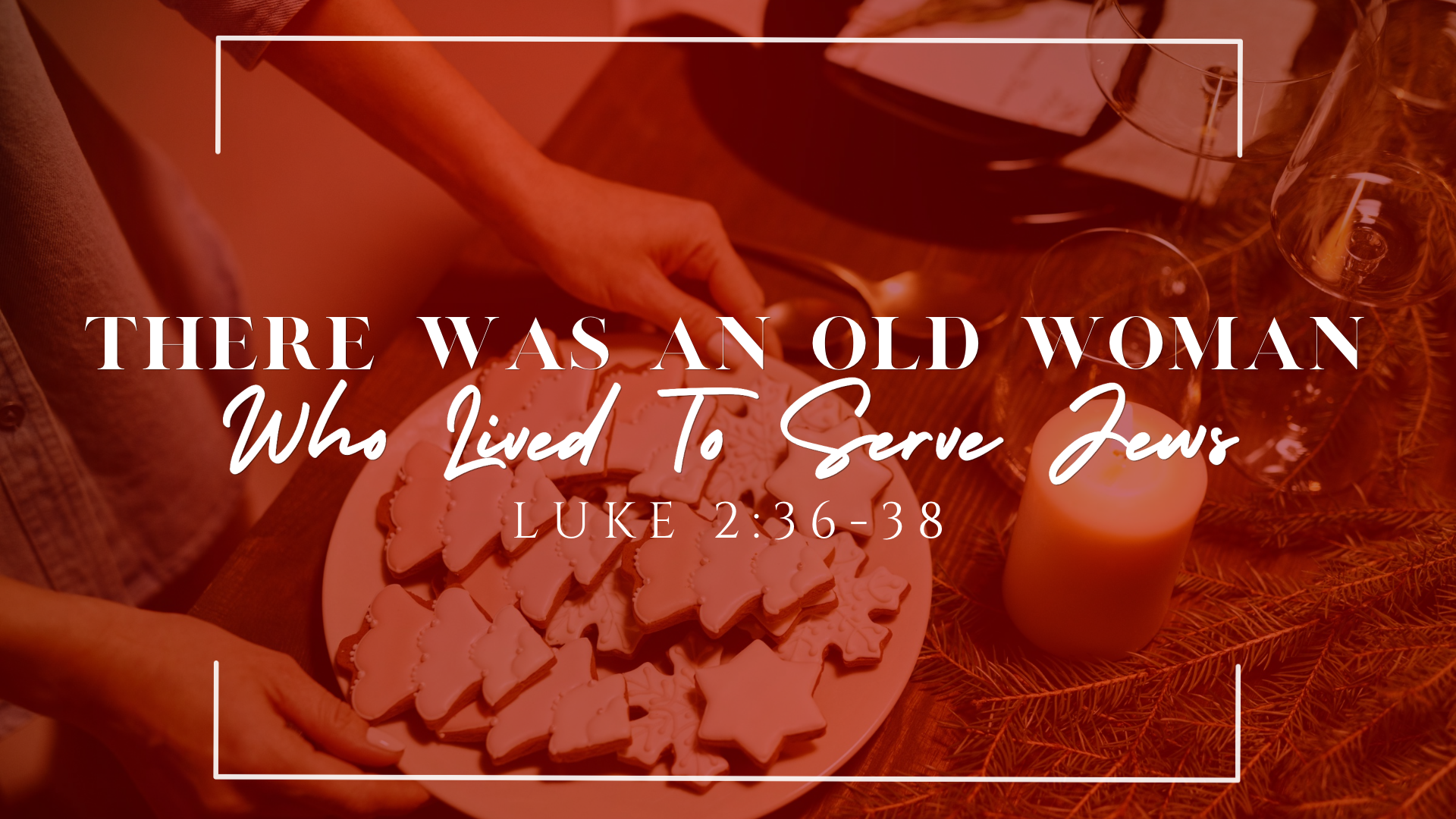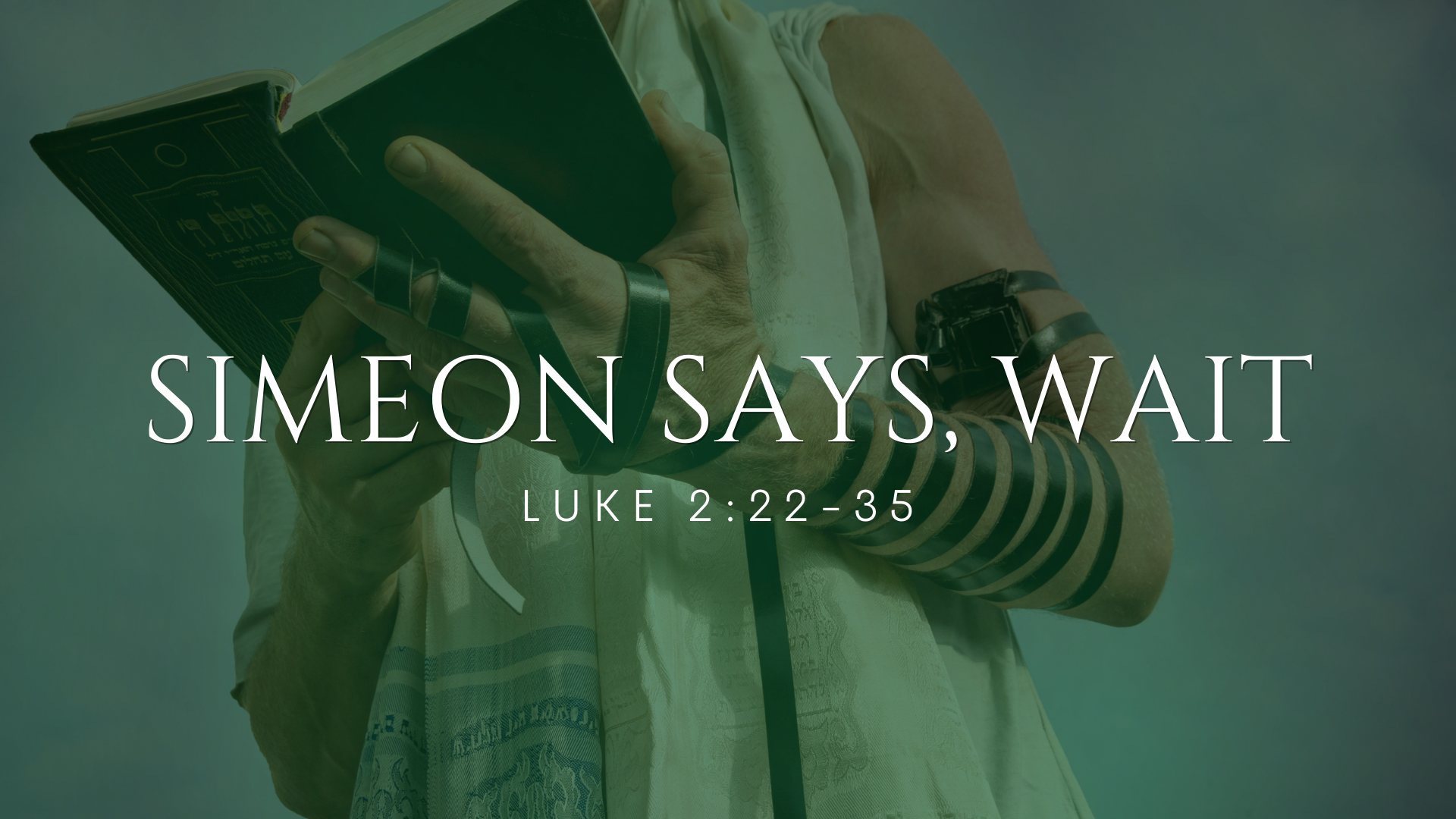
The Sights Before Christmas (Luke 2:1-20)
Can you win a game of chess if you only have a few pawns with your king? Your coach will tell you no[1] – that those pawns need to be promoted into more powerful pieces. Even with support from the rest of the chessmen, the odds of a pawn checkmating an enemy king are one in a thousand.[2]
When Jesus came on that first Christmas, He came as God’s Indescribable Gift to us. But it was also a significant move in His plan to checkmate Satan, sin, and death. Of course, God isn’t playing games with humanity. He is waging war and rescuing us from our captors. But, through the centuries, as He moved in conquest, the devil made counter moves in his effort to defeat the Lord.
Perhaps Satan thought he had God on the ropes. It didn’t seem like the Lord had made much progress for several hundred years. God’s people were subjected under Satan’s puppet king. And, looking at the board, when the Messiah arrived, He was surrounded not by knights, but by pawns.
When we read Biblical accounts of Christ’s birth, a consistent theme is how amazed and astonished the people in these scenes were. And we should be astonished, too. Solomon tells us that, “God works so that people will be in awe of him.”[3] So, let’s look at Luke’s telling on Christ’s birth and allow our hearts to be filled with awe at the wonderful, generous power of God.
Luke 2:1-3 – In those days a decree went out from Caesar Augustus that the whole empire should be registered. 2 This first registration took place while Quirinius was governing Syria. 3 So everyone went to be registered, each to his own town.
Luke sets the scene by first showing us the power of Rome. We’re meant to see a contrast between earth’s king and Heaven’s King – between the kingdom of darkness and the Kingdom of light.
Augustus, also called Octavian, was the first Roman Emperor.[4] He expanded his territory through bloody conquest. Now, he was reorganizing how the empire would be administered.[5] He would need more soldiers and he would especially need more taxes to fund his dominion. And so, he called for this census so he could tax and, in some cases, conscript fighters accordingly.[6]
Luke 2:4-5 – 4 Joseph also went up from the town of Nazareth in Galilee, to Judea, to the city of David, which is called Bethlehem, because he was of the house and family line of David, 5 to be registered along with Mary, who was engaged to him and was pregnant.
The trip from Nazareth to Bethlehem was about 90 miles.[7] Like walking from here to the far side of Bakersfield. The likely route Mary and Joseph took would be difficult and dangerous. Descending down toward the Dead Sea and then a constant ascent up into the Jerusalem hills.
Now a lot of the details we traditionally associate with this story are not actually given in the Gospels. Hopefully it’s not too upsetting to hear that there’s no sign of a donkey on this trip. Maybe they haven’t one, maybe they didn’t. We tend to put that in because we don’t like to think of poor Mary walking all that way while great with Child. But, there’s nothing in the text about the trip itself.
Nor can we be sure she was 9 months pregnant at the time they traveled.[8] That’s usually the image, right? As the donkey makes its last steps into Bethlehem, her contractions start. It makes for great drama, and it may have happened that way, but we have to read that into the text.
Joseph and Mary weren’t stupid, and in Matthew we see they stayed for an extended period of time in Bethlehem. Perhaps it was less last-minute and less haphazard than the movies suggest.
The important thing is not the timing of their arrival, but the fact that they did arrive. You see, the Messiah had to be born in the city of David. Luke keeps bringing up David. Why?
It’s because God made eternal promises to and through David. The King of kings, the Savior of the world, the One Who would make everything right would be a descendant of David. Along with that promise, God made many other promises concerning this Son of David. And God is never slack concerning His promises. He keeps them to the letter, even in the smallest details.
Now, it’s surprising that Mary came along on this trip.[9]
Perhaps her pregnancy caused so much social friction in Nazareth that it was best for her to go with Joseph. Or perhaps it was because the Syrian province (which included Judea) taxed men and women.[10]
Luke 2:6-7 – 6 While they were there, the time came for her to give birth. 7 Then she gave birth to her firstborn son, and she wrapped him tightly in cloth and laid him in a manger, because there was no guest room available for them.
It doesn’t say the contractions started the moment they arrived. They may have already been there for weeks. Luke also does not indicate that Mary and Joseph were rudely rejected by all the innkeepers of Bethlehem.[11] For one thing, Bethlehem was probably too small to actually have a commercial inn.[12] And the word Luke uses for inn doesn’t mean a hotel. In fact, it’s the same word he later uses for the “upper room” that Jesus and His disciples use for the last supper.[13]
The term means a guest room. This was likely the home of their extended family. Lots of people were there for the census. The house was packed. Let me ask you moms this: If you were about to give birth, do you want 8, 10, 20 people in the room with you? Or would you like some privacy?
Here’s a question I hadn’t thought about before: Who was in the stable that night? Again, we have this idea that it was just Mary and Joseph, maybe a few sheep and cows, right? It’s likely that a midwife was there with them assisting, especially considering this was Mary’s first delivery.[14]
The point Luke is making in this account is less about that night being scandalous or embarrassing. His point is to show us what kind of King Jesus was, right from the start.
What kind of King leaves His throne? What sort of Kingdom would He establish? Luke’s wants to highlight the humble and lowly nature of the Lord Jesus. This was a King Who came to serve. This was a King Who did not demand a palace. This was a King Who paid everything that was necessary on behalf of His people.
Compare Him with Caesar, who was driving his people from here to there so he could extract from them to fuel his greed. But not Jesus. He came to be with us. Whether that was in a stable or in a fishing boat or by a well or in your living room. That’s why He came – to be Emmanuel.
Luke also wants us to realize that Jesus was a real human Baby. He was, of course, fully God, but it’s just as essential that He be fully Man. In the first few centuries after Christ’s death and resurrection, heresies arose which taught that Jesus was not, in fact, actually human. That He only seemed to be human.[15] But He really was fully God and fully Man. He was swaddled up like any other baby.
Luke 2:8-9 – 8 In the same region, shepherds were staying out in the fields and keeping watch at night over their flock. 9 Then an angel of the Lord stood before them, and the glory of the Lord shone around them, and they were terrified.
Why did the new come first to shepherds? The angels could have appeared to Herod, or Augustus himself. Maybe the high priest or the Essenes out in the desert. How about the zealots? If God wanted to make a move to establish a Kingdom, some soldiers would be helpful, right?
Instead, shepherds. Pawns. Shepherds were generally seen as outcasts – undesirable, unclean.[16] But we remember the connection to David. David, who was anointed while tending sheep and told by God that he would shepherd Israel.[17]
It is a foreshadow of how Christ would be the Good Shepherd, Who lays down His life for His sheep.[18] How, laying down His life, He was the Lamb of God Who takes away the sin of the world.[19]
God wanted it to be very clear Who Jesus was and what He would do. You see, these shepherds between Bethlehem and Jerusalem were likely watching over the temple flocks – the sheep destined to be sacrifices on the altar of Israel.[20] God was explaining the Gift He was giving us.
Luke 2:10-14 – 10 But the angel said to them, “Don’t be afraid, for look, I proclaim to you good news of great joy that will be for all the people: 11 Today in the city of David a Savior was born for you, who is the Messiah, the Lord. 12 This will be the sign for you: You will find a baby wrapped tightly in cloth and lying in a manger.” 13 Suddenly there was a multitude of the heavenly host with the angel, praising God and saying: 14 Glory to God in the highest heaven, and peace on earth to people he favors!
This is amazing not only because it was a miraculous visitation by supernatural beings, but because their statements are a direct refutation of the worldly king who thought he was in charge.
When Octavian became emperor, he was given the name “Augustus,” which means, “exalted one,”[21] or “holy and revered.”[22] He was worshiped by the Imperial cult,[23] and Roman inscriptions called him the “savior of the world.”[24]
But here are the angels saying, “No, no, the Savior of the world, the Messiah, the real Lord has just been born in Bethlehem.” And this Messiah will usher in real peace.
You see, Augustus established the Pax Romana. After decades of civil war, he brought stability to the empire.[25] But it was at the edge of a blood-soaked sword. It was a dark peace.
But into that dark, the light of heaven suddenly broke through with an offer of real peace. Not one enforced by violence, but one offered in grace. Not one that lasts for 250 years, but one that lasts forever.
But who gets to enjoy this peace? Well, the angels give two qualifiers. The first is hidden in the english. Where it says news of great joy that will be for “all the people,” scholars explain it is a specific reference to those who belong to God.[26]
Who belongs to God? Well, that’s in the second qualifier: the people on whom His favor rests. Those who have willingly received His gift of grace. Those saved by grace, through faith in this Messiah, Christ Jesus. But for those who refuse to accept Christ as Savior, there is no peace.
The angels told the shepherds how to find the newborn King. The question is: Would they go to Him? Well, of course they would, right? But remember what happened when the scribes and priests were told the King was born in Matthew 2? They stayed home. They were uninterested.
God’s gift has been arrived. Maybe you’ve never believed Jesus is Who the Bible says He is. But He is the Savior and Messiah. He is the only One Who can rescue you from the guilt of your sin and the grave. Are you willing to believe? You can receive this gift today and you don’t have to be afraid.
That was what the angel said to the shepherds. They were terrified, but they didn’t have to be afraid. Neither do you. Now, we do need to be confronted and redirected and converted, but not afraid. Because our Savior is a King of love. Pleased as Man with men to dwell.
Luke 2:15-16 – 15 When the angels had left them and returned to heaven, the shepherds said to one another, “Let’s go straight to Bethlehem and see what has happened, which the Lord has made known to us.” 16 They hurried off and found both Mary and Joseph, and the baby who was lying in the manger.
The angels returned to heaven. Do you think they were disappointed? Wouldn’t it have been great if they went through the streets of Bethlehem? Or flown right into the palace of Jerusalem or Rome? But this was not about God’s gift to angels. It was about His love for humankind. And though they be weak as pawns, it was shepherds and carpenters that the Lord wanted to spend that first Christmas with.
For their part, the shepherds had immediate belief. A faith that moved. They left their sheep and supplies behind, not waiting for someone else to cover them. This was too important, too amazing.
Luke 2:17-18 – 17 After seeing them, they reported the message they were told about this child, 18 and all who heard it were amazed at what the shepherds said to them.
This is another subtle hint that Mary and Joseph weren’t absolutely alone in the stable. The shepherds come, see Jesus and His parents, then tell their story and “all who heard it” were amazed. Someone else was there.
They were all amazed at what had happened. But this was just the beginning of what Jesus was willing to do for us. He is the most generous, most caring Person to ever exist. Consider what He deserves – the praise and the pomp and the pageantry and everything else. But He set it all aside and offered Himself so you can be saved. So you can receive His everlasting life. So that He can love you and walk with you and share His inheritance with you. He is a Savior born for you (v11).
Luke 2:19 – 19 But Mary was treasuring up all these things in her heart and meditating on them.
Perhaps Mary had been wondering why this Child of promise had such a lowly entrance into the world. Had God forgotten them? Did He forget to provide them what they needed? What about in the days to come? Would He be faithful? But as Jesus lay in a manger, the Lord sends Mary and Joseph a powerful testimony of His care and faithfulness. He proved His goodness and ability to Mary and Joseph that night.
Luke 2:20 – 20 The shepherds returned, glorifying and praising God for all the things they had seen and heard, which were just as they had been told.
It says they “returned.” They went back to their regular lives, but they were transformed. Now, they weren’t just watching sheep, they were simultaneously doing the heavenly work the angels did before – praising God and preaching the Good News. And, as they lived their regular lives, they waited for the next part of the story to unfold. How long would it take? When would the next part unfold? They didn’t know. But that didn’t matter, because they knew the Savior Himself. They had opened the gift and their lives would never be the same.
Christ came to save you. Have you received that gift?
If you have, this story then reminds us that Christ came to dwell with you, walk with you, live with you in whatever life He’s given you. And as we live our lives, we’re commissioned to be a part of His ongoing work of love, power, and grace. Lives that praise and glorify God as we share the Good News that the Savior was born for us, the Messiah, the Lord.
We may feel insignificant, like pawns without much power, but God has decided to bless us and use us and fill our lives with His Presence. So, celebrate His victory and generosity and affection as we remember Him this week, thanking and praising God for His Indescribable Gift.
| ↑1 | https://www.masterclass.com/articles/can-a-pawn-take-a-king-explained |
|---|---|
| ↑2 | https://enthu.com/blog/chess/can-a-pawn-take-a-king-in-chess/ |
| ↑3 | Ecclesiastes 3:14 |
| ↑4 | Robert Jamieson, A. R. Fausset, and David Brown Commentary Critical And Explanatory On The Whole Bible |
| ↑5 | Leon Morris Luke |
| ↑6 | CSB Study Bible Notes |
| ↑7 | Darrell Bock Luke |
| ↑8 | Frank Gaebelein, D. A. Carson, Walter Wessel, and Walter Liefeld. The Expositor’s Bible Commentary: Matthew, Mark, Luke Volume 8 |
| ↑9 | R.T. France Luke |
| ↑10 | Craig Keener The IVP Bible Background Commentary: New Testament |
| ↑11 | EBC |
| ↑12 | France |
| ↑13 | Luke 22:11 |
| ↑14 | IVP. Also see a thoughtful discussion on the issue in Grasping God’s Word Scott Duvall, Daniel Hays |
| ↑15 | Gnosticism, Docetism. |
| ↑16 | Robert Stein The New American Commentary, Volume 24: Luke |
| ↑17 | 2 Samuel 7:8 |
| ↑18 | John 10:11 |
| ↑19 | John 1:29 |
| ↑20 | Marvin Vincent Word Studies In The New Testament |
| ↑21 | CSB Study Bible Notes |
| ↑22 | R. Kent Hughes Luke, Volume 1 |
| ↑23 | https://en.wikipedia.org/wiki/Augustus |
| ↑24 | Hughes |
| ↑25 | Faithlife Study Bible Notes |
| ↑26 | Bruce Larson, Lloyd Ogilvie The Preacher’s Commentary, Volume 26: Luke |








